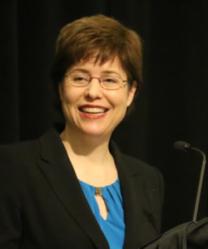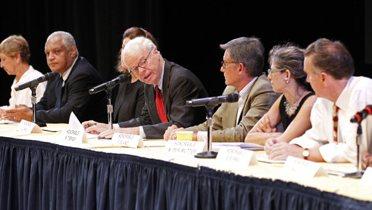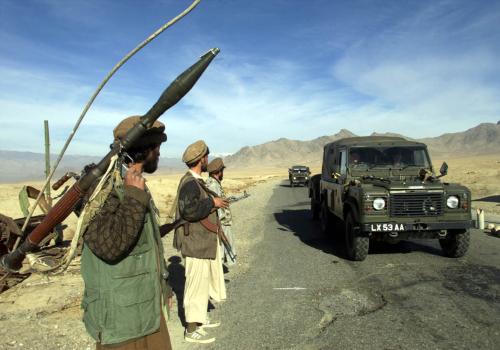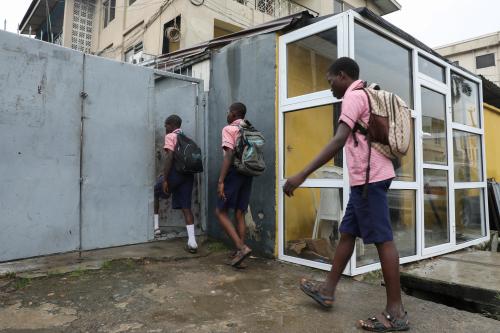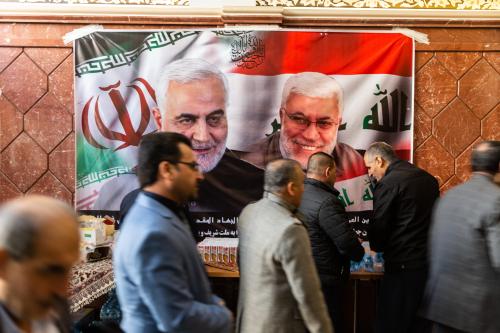Introduction
The New York City Landmarks Preservation Commission announced yesterday that it will not designate the building at 45-51 Park Place in lower Manhattan as an historic landmark. The building, which is two blocks north of Ground Zero, does not have the architectural or historic significance to merit such a designation, the Commission unanimously said. While a decision like this normally would not draw national attention, this one already has because it essentially clears the way for the owners of the property to tear down the existing structure and build an Islamic center there.
This decision is one of several in which New York City officials have taken care to treat the planned Islamic center the same way they would treat plans for a YMCA or Jewish community center in this space. In so doing, these officials have honored core dictates of religious freedom.
Especially because other local leaders across the nation are facing related issues, it’s worth looking at the excellent example set by New York City’s officials. And with the battle for public opinion over the planned Islamic center still very much in play, an assessment of that debate also is in order.
The First Amendment and RLUIPA
The First Amendment to the United States Constitution bars the state from singling out certain religions for special disabilities. In 1993, for example, the United States Supreme Court said: “At a minimum, the protections of the Free Exercise Clause pertain if the law at issue discriminates against some or all religious beliefs . . . .” This includes discrimination that “is masked as well as overt.”
Further, a federal law that specifically deals with religious institutions and land use regulation, the Religious Land Use and Institutionalized Persons Act (RLUIPA), plainly states: “No government shall impose or implement a land use regulation that discriminates against any assembly or institution on the basis of religion or religious denomination.” Whether the entity is Muslim, Mormon, or Methodist, Congress recognized that faith-based discrimination by the government must not be tolerated.
Thus, if government officials were to reject or specially burden plans for mosques or other Islamic institutions because of their religious affiliation, it would violate both the Constitution and federal statutory law. This would be true whether the discrimination was plain to see or whether it lurked behind objections about things like traffic, aesthetics, and noise.
Of course, a commitment to treat all religions the same does not tie the government’s hands regarding specific and credible threats of violence. To cite a recent example, in March 2010 a federal grand jury indicted members of a Michigan militia group for plotting to attack police and use weapons of mass destruction. The group was known as “Hutaree,” and its members described themselves as Christian soldiers preparing to battle with the anti-Christ. That certainly did not stop law enforcement from taking action, and properly so.
New York City’s Example
At a tense hearing in May 2010, a New York City community board rejected a motion to delay a vote on the planned Islamic center and backed the project by 29-to-1, with 10 abstentions. New York City Police Commissioner Raymond Kelly said there were no security concerns about building the Islamic center in the area, and city officials quite rightly dismissed the notion that all things Islamic pose violent threats.
When some later suggested the city should take the land around Ground Zero by eminent domain in order to stop the Islamic center, Governor David Paterson’s office said such a move would be “an obvious violation of the First Amendment’s religion clauses, a gross violation of the spirit and intent of the eminent domain provision in state law, and [it could] run afoul of other federal and state statutes and constitutional provisions.” He was right. Others proposed launching a special investigation of the funding sources for this project, even though they admitted there was no evidence of wrongdoing. Attorney General Andrew Cuomo properly rejected it as a bad idea.
When the case came before the Landmarks Preservation Commission, many tried to distract the body with issues that were not part of its jurisdiction. The Commission kept its eye on the ball. Elisabeth de Bourbon, a spokeswoman for the body, called the controversy over the Islamic center an issue that was “totally separate” from the Commission’s work. “What we’re looking at it is whether the building has the architectural and historic significance to the city of New York to merit landmark designation.”
But the Manhattan figure most identified with these principled, consistent, and no-nonsense stands is New York City Mayor Michael Bloomberg. Whereas former Alaska governor Sarah Palin cited the pain of 9/11 victims and urged Muslims to oppose the project, the mayor noted that American Muslims were among those who were murdered on 9/11. They too are part of the community in lower Manhattan, he said, and they have a right to build there. When Newt Gingrich said “[t]here should be no mosque near Ground Zero in New York so long as there are no churches or synagogues in Saudi Arabia,” Mayor Bloomberg invoked our country’s founding. “If somebody wants to build a religious house of worship, they should do it and we shouldn’t be in the business of picking which religions can and which religions can’t,” he said. Bloomberg continued: “You know, the ability to practice your religion is the- was one of the real reasons America was founded. And for us to say no is just, I think, not appropriate is a nice way to phrase it.” Indeed, every time New York City officials were urged to place special burdens on this project precisely because it is affiliated with Islam, the mayor cried foul.
Bloomberg capped off these efforts with a stirring speech yesterday on Governors Island. The mayor said: “This nation was founded on the principle that the government must never choose between religions or favor one over another. “ He deemed battles like this one as “important [a] test of the separation of church and state as we may see in our lifetimes,” and said “it is critically important that we get it right.” Mayor Bloomberg has done so here.
An Affront or An Advance?
Now that the Landmarks Preservation Commission has spoken, opponents of the Islamic center are likely to focus largely on the claim that, while the owners of the property may have a legal right to move forward, the project is unnecessarily provocative and hurtful. Thus, they should pull the plug on their plans, opponents say.
If the sponsors of the Islamic center sympathized with the 9/11 hijackers, this argument would make sense. But they have said just the opposite. One of the leaders, Imam Feisal Abdul Rauf, has emphasized that project organizers “have condemned the actions of 9/11,” and “[w]e have condemned terrorism in the most unequivocal terms.” According to the Imam Feisal, the sponsors of the Islamic center want “to push back against the extremists,” and help “bridge and heal a divide” between Muslims and other faiths. The FBI has said Rauf assisted its agents in outreach to Muslims in the wake of September 11: “We’ve had positive interactions with him in the past,” a FBI spokesman noted. Daisy Khan, Imam Feisel’s wife, and a member of an advisory team for the National September 11 Memorial and Museum, has stressed their efforts “to de-link Islam from acts of terrorists.” Sharif el-Gamal, a lead developer of the project, and one who assisted first responders on 9/11, has promised that “[r]adical and hateful agendas will have no place” in this endeavor.
In the face of questions about fundraising for the Islamic center, Sharif el-Gamal has said, “We are in the process of establishing a not-for-profit entity, and we have not raised any money from foreign governments.” Moving forward, el-Gamal has promised “to make sure our fundraising and planning involves people from across the city” and to “do so in a way that hears concerns and responds to them.” He told CNN that project organizers “plan on being very transparent throughout the whole process.” El-Gamal has extended an open invitation to Americans, including former Alaska Governor Sarah Palin, to visit the community and learn more about the plans. He said: “You know, I’d love it if Sarah Palin came to Park51 to see our community. . .. We want to welcome everybody who cares about this city and about this country.”
Given these kinds of statements, it is unsurprising that a number of New York City religious leaders have spoken in favor of the project. Father Kevin Madigan of St. Peter’s Church said: “I think they need to establish a place such as this for people of goodwill from mainline Christian, Jewish and Muslim faiths so we can come together to talk.” Joy Levitt, executive director of the Jewish Community Center in Manhattan, told the New York Times: “For the J.C.C. to have partners in the Muslim community that share our vision of pluralism and tolerance would be great.” And a host of local religious leaders turned out yesterday to support plans for the Islamic center, including those from the Greek Orthodox Archdiocese, the Jewish Community Council, the Church of St. Francis of Assisi, the National Jewish Center for Learning and Leadership, Trinity Church, Church of the Nazarene, the Islamic Cultural Center of New York, the New York City Buddhist Church, the United Jewish Agency Federation, and the Interfaith Center of New York.
Having dedicated their project to this spirit, and having made these promises, I would urge Americans to welcome the organizers’ efforts. As noted above, opponents of the project say Islamic symbols and institutions create pain because they associate them with the 9/11 attacks. But many Muslims who condemn terrorism also claim those symbols and institutions — they did before 9/11 and they do today. If Americans rebuff high-profile efforts by Muslims who condemn terrorism to reclaim their faith, we effectively give the 9/11 hijackers and their ilk a monopoly on the symbols and institutions of Islam. This would provide violent extremists with a powerful recruiting tool, and it would be deeply unfair to the vast majority of Muslims who practice their faith in peace.
Making Peace, Building Solidarity
As other cities and towns consider plans for mosques and other Islamic institutions in their communities, they should read a two-year study of American Muslims and terrorism done by Duke University scholar David Schanzer. Professor Schanzer and his colleagues found that “Muslim-American organizations and the vast majority of individuals who we interviewed firmly reject the radical extremist ideology that justifies the use of violence to achieve political ends.” They also discovered that “Muslim-Americans have taken a number of positive steps to reduce the potential for radicalization.” In addition to publicly and privately condemning terrorist incidents, they have warned congregants against propaganda, performed background checks on proposed speakers at mosques, pre-viewed texts to be offered at Friday prayer services, and barred certain speakers from their communities. They have sponsored anti-terrorism workshops and provided forums for youth to head off potential problems. Muslim Americans also have provided information to law enforcement about individuals who might engage in violence. Thus, thwarting the building of American Muslim communities would often mean thwarting some of our best weapons against terrorist threats.
Local officials who are facing related issues also should study New York City’s example. In the face of enormous pressure to do otherwise, city officials held fast to the principle that the government must apply the same standards to all faiths, a linchpin of the American tradition of religious liberty. Adherence to this principle has helped us to make peace and build solidarity in a nation where a stunning array of religions are practiced, often with great fervor, and frequently side-by-side. Contrary to Newt Gingrich’s suggestions, honoring this standard of religious freedom has not made us “weak” or “submissive.” It has made us strong.
